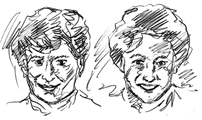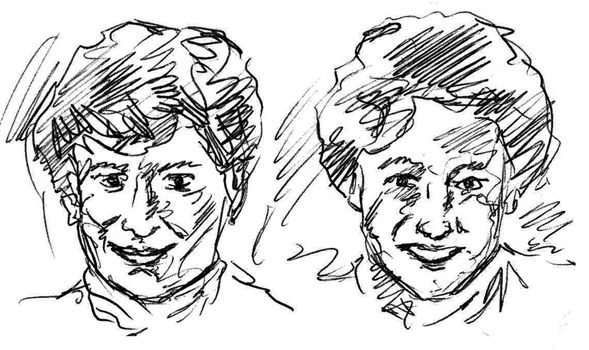Feminist Philosophy, Metaphor and Metaphor(m)
by Mark Staff Brandl

Various concepts derived from feminist literary theory have been partially surfacing in other contexts in this website up to this point. Feminist theory contains a wide, exhilarating range of approaches and concerns. Three specific considerations I find most valuable. First, many feminists concentrate on strategies of action. Although the majority of feminist literary critics also wield grand theories, they prefer to treat these as instruments applied to attain very specific goals. This is a pointed admonition for the recent art and literary worlds, especially for those of us who hypothesize gladly. Don’t take your ideology for the very reality it seeks to describe or change! Stay pragmatic! This reminds me that my interest was in constructing a theory in metaphor(m), yet not an absolute one. Rather, one that grows from an appreciation of the nuts-and-bolts of production, and thereby endeavors to avoid too much abstracted absolutism.
Second, the feminist concept of the located self is one of the great tools of thought in history. This is the elucidation of the fact that gender and the rest of one’s personality are largely socially constructed, not solely biological givens. Each person consists of a web of locational connections. This idea shapes my thought as a whole.
Third, an appreciation made by Sandra Gilbert and Susan Gubar is a key idea. They assert throughout their historic book The Madwoman in the Attic, that it is imperative for feminists to both partially comply with and yet contravene patriarchal literary standards.1 There has been a backlash by those calling themselves post-feminists against certain elements of feminism they claim are misandrist and devisive. Nevertheless, the qualities I find useful and have described are being constructively continued in the so-called third-wave feminists. As discussed in the section on Kristeva above, taken more broadly such strategies disclose the loophole through which resistance can come into existence. I find this loophole to be the play with tropes.
